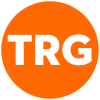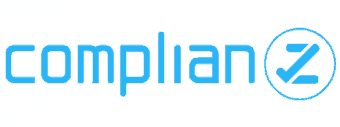Four considerations to integrate AI into your health care PR practices

For the public relations industry, as for nearly every sector right now, artificial intelligence remains largely an unknown. AI’s ethical use is hotly debated. Its capability to accelerate our work is unmatched. Yet none of us can fully comprehend the impact it will have on health care PR practices or on health care overall.
In fact, the Federal Trade Commission is currently investigating generative AI platform ChatGPT. According to The New York Times, the investigation is based on “its collection of data and its publication of false information on individuals.” With the increasing adoption of this technology, it is crucial that we stay up to date with the advancements but remain cautious of the results.
That’s why our TRG team is staying connected to the changing nature of AI and know there are multiple avenues to explore:
AI-based services create new efficiencies for our team. We’ve been using it to create new efficiencies and enable our employees to spend their time on higher-level thinking. For example, our team now uses an AI-based service that transcribes voluminous material within minutes, enabling our staff to spend more time on higher-impact work such as our message-testing and commentary-development processes.
Generative AI, like ChatGPT, is a great tool for brainstorming. AI can elevate brainstorming to a new level. Stuck on how to reach a new audience? Looking for ideas on a tag line? Considering what tactics might work for a PR campaign? Now, a simple online query can eliminate the challenge of a blank screen and get those creative juices flowing. We intend to use ChatGPT to jump-start the creative process when needed. But this comes with a caveat: nothing generated by these programs should be taken at face value and used without careful checking. We also will not input confidential internal or client data into these platforms, which could then make that information available to others.
Accuracy is an issue and needs to be monitored. Another huge challenge with these programs is their potential to spread misinformation and disinformation and promote biases. In fact, AI sites even caution that their outputs might contain factual errors. So, while it might seem like the sky is falling—and the robots will soon be cranking out press releases and messaging platforms—there’s no replicating the human touch. We still have expertise and know-how that ChatGPT doesn’t. And it is our responsibility to ensure client content is accurate and fair. We’ll also be working with our vendors to closely monitor their use of AI.
Staying ahead of the technology will make us better PR pros. It would be easy to try to ignore the trend toward AI and let somebody else figure it out. But at TRG, we are always seeking innovative ways to meet client needs. AI has the potential to boost our creativity and speed our workflow as we give our clients cutting-edge communications advice. My research in ChatGPT, for instance, recently helped me provide guidance to a client considering the best way to announce AI enhancements to its own technology platforms.
My career in public relations has already seen massive shifts in how we do our work. AI is the next frontier. Rather than retreating from the unknowns, we believe that learning how AI can improve our skills will only make us better communicators.




